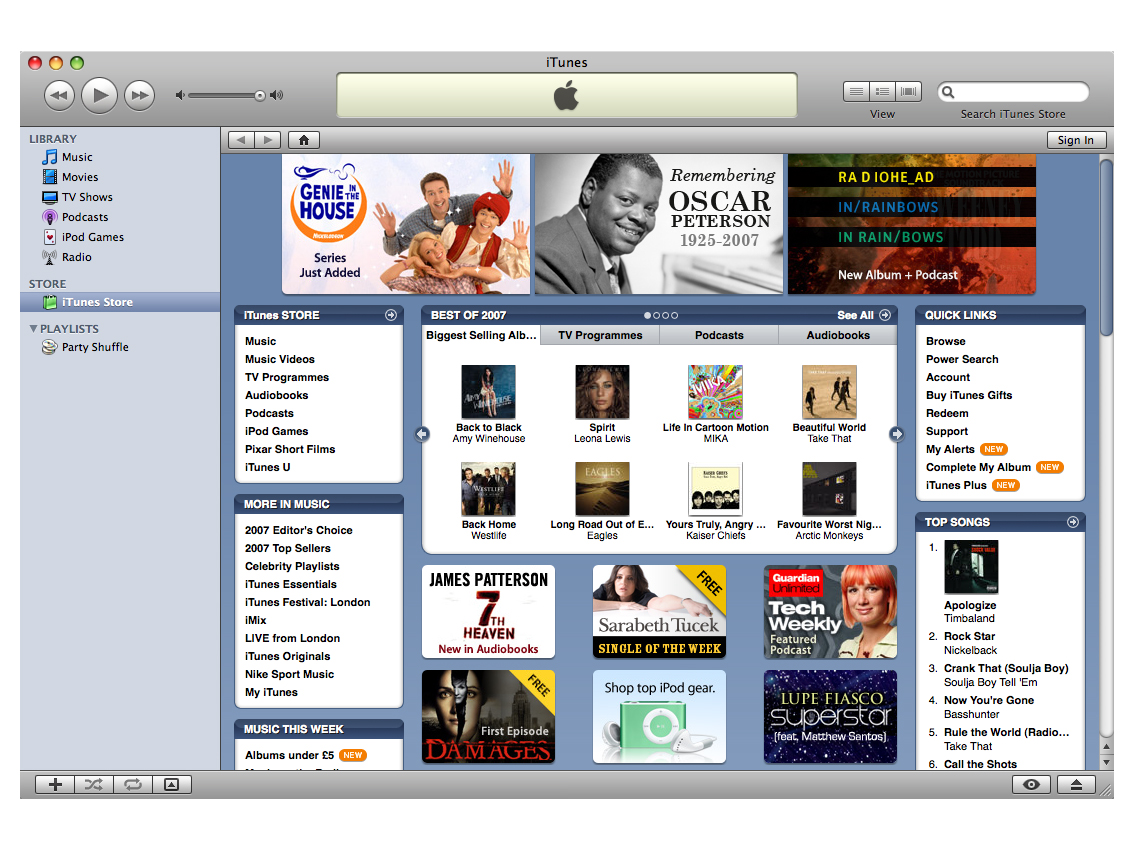Is the music biz out of love with iTunes?
Even if the movie business isn't

Pepsi has inked a deal with Amazon that will see up to one billion songs given away from the Amazon music store during the next twelve months. From February onwards, US consumers of Pepsi products will be given vouchers that can be redeemed for songs at the
website.
In 2004 Pepsi did much the same thing. Only on that occasion its partner was Apple's iTunes service. Many pundits have interpreted Amazon's appointment and Apple's exclusion as being symbolic of a wider shift in allegiance by the major record labels away from iTunes. The insinuation is that Pepsi was leaned on by the major record labels to go with Amazon instead of Apple. If that's the case then what went wrong?
Shift in power
There are lots of complex and interwoven reasons why the major labels are slowly falling out of love with iTunes, but what lies at the root of it all is a collective fear that Apple has become far too powerful in the digital downloads business. The simple fact is that although the record labels need to sell their product through iTunes, they don't want iTunes to have so much power that it ends up dictating terms back to them about how its sold.
In an industry where sales have been heading south at an alarming rate for many years, that scenario simply isn't acceptable any more. So the labels have plumped to put their support behind a credible rival to Apple. Enter AmazonMP3, which launched last September promising cheaper prices and no DRM issues to contend with.
Get daily insight, inspiration and deals in your inbox
Sign up for breaking news, reviews, opinion, top tech deals, and more.
The issue of DRM lies at the heart of the Amazon charm offensive. While Steve Jobs fights an ongoing battle to try and free iTunes downloads from the spectre of DRM, the major labels have already granted Amazon's fledgling service DRM-free downloads from the get-go. Of course, it remains to be seen if this alongside the Pepsi promotion will lure new customers in sufficient numbers. Even if it does, will they remain loyal once the promotion is over?
Should Apple be worried?
It's not yet clear how threatened Apple feels by Amazon's service, but the general consensus is 'not very'. It's even been suggested in some quarters that Apple might welcome a slight reduction in market share as it'll give less weight to those who claim it abuses its dominant position.
And of course there's the argument which says the more digital music is sold, the more people are going to need MP3 players to play them with. And while Amazon trumpets the fact that its downloads can be played on any MP3 player, topping the list of suitable hardware in most people's minds is the iPod.
Conveniently for Apple, Amazon already sells a large number of iPods on its behalf. Oddly enough, visit the AmazonMP3 site and one of the first things you may notice is a rather prominent picture of one.
Of course, it's early days yet. Things could change dramatically if the major labels were to challenge iTune's dominance more directly by, say, offering exclusivity deals to Amazon on releases by major artists. So, while Steve Jobs and Apple can easily retain their collective Pacific cool for now, things could become more turbulent in the months ahead.
The TechRadar hive mind. The Megazord. The Voltron. When our powers combine, we become 'TECHRADAR STAFF'. You'll usually see this author name when the entire team has collaborated on a project or an article, whether that's a run-down ranking of our favorite Marvel films, or a round-up of all the coolest things we've collectively seen at annual tech shows like CES and MWC. We are one.